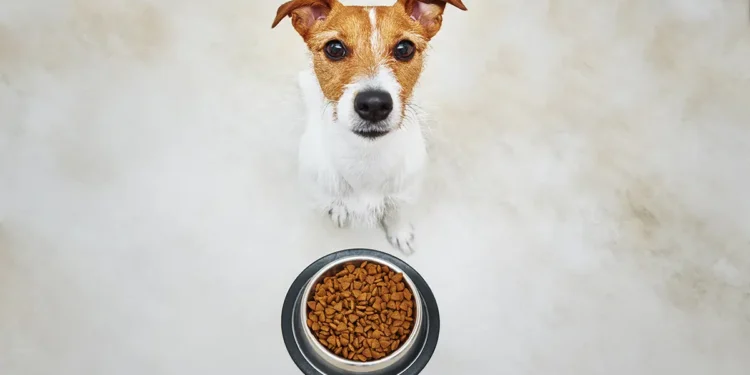How to find the balance between types of food that are both good for your pet and the planet. Our eco-friendly Dog food guide ensures you cover all the angles.
When it comes to thinking about our personal impact on the environment, it can feel easy to make small changes that benefit the greater good. Perhaps we take the train instead of driving, maybe we recycle and compost waste, or is your ‘thing’ choosing a diet that is primarily plant-based.
For us humans, that final example – eating more vegetables over meat – is not only good for the environment, but also beneficial for our bodies. However, when it comes to making the same choice for our pets, it isn’t so straightforward…
Dietary Ethics: Be Careful When Thinking About The Best Sustainable Dog Food
The first concern is whether it is ethical to decide on behalf of a primarily carnivorous creature, such as a cat or dog, that they will now eschew animal protein altogether. Secondly, are we certain they will have the nutrition they require to thrive, on such a restrictive diet?
Those of us who own a cuddly canine can testify that the odd carrot or chunk of red pepper goes down very nicely, thank you very much. However, even the nutritious humble carrot ought only to be given occasionally to your dog as their high sugar content can rot Fido’s teeth.
The trick then, is to find a balance that pleases both your planet AND your pet.
The Environment
It follows – one of the most effective ways to reduce the environmental impact of your pet’s diet is to choose dog food that incorporates sustainably sourced plant-based ingredients. Traditional meat-based diets often require more resources, such as land, water, and energy, compared to plant-based options. Additionally, the production of meat-based pet food can contribute to deforestation and greenhouse gas emissions.
Look for dog food brands that use either insect or high-quality plant-based proteins like peas, lentils, or chickpeas. These ingredients can provide your dog with the essential amino acids they need for a balanced diet while significantly reducing the carbon footprint of their food.

Ethical Dog Food and Sustainable Meat
If you prefer to include meat in your dog’s diet, consider selecting products that use ethically sourced, human-grade meat. These meats come from animals raised in more humane and sustainable conditions, reducing the overall environmental impact. Furthermore, supporting companies that prioritise ethical sourcing can encourage better practices in the meat industry.
In addition, minimally processed dog food with fewer artificial additives and preservatives is not only healthier for your pet but also better for the environment. Highly processed pet foods often require more energy and resources to manufacture and package. Choosing natural, whole-food ingredients is likely to be far tastier too!
Quantity and Quality
Overfeeding is a common issue among pet owners, leading to excess food consumption and, consequently, more waste. Proper portion control not only promotes your dog’s health but also reduces the amount of uneaten food that ends up in landfills. Consider consulting with your veterinarian to determine the appropriate portion size for your dog’s age, size, and activity level.
Extras Sustainable Dog Food Packaging
When selecting dog food, pay attention to the packaging. Opt for brands that use sustainable packaging materials, such as recyclable or biodegradable options. Reducing the amount of plastic waste generated by pet food packaging can significantly contribute to a greener planet.
Homemade Sustainable Dog Food
For those who have the time and inclination, preparing homemade dog food or exploring do-it-yourself (DIY) dog food recipes can be a sustainable choice. Homemade dog food allows you to have full control over the ingredients, ensuring a diet that aligns with both your pet’s nutritional needs and your environmental values. Just be sure when thinking about eco friendly gog food to consult with a veterinarian or pet nutritionist to ensure your homemade meals are well-balanced and meet all of your dog’s dietary requirements. Finally, always make sure your dog has plenty of fresh water as this not only aids digestion but also quells hunger pangs which makes them less inclined to beg or scavenge.







